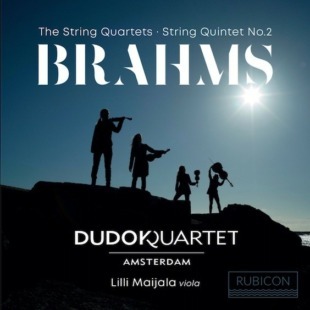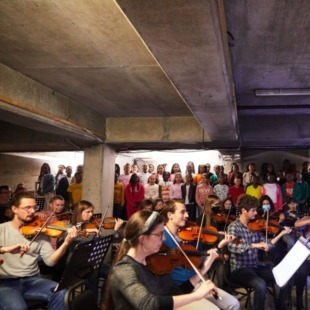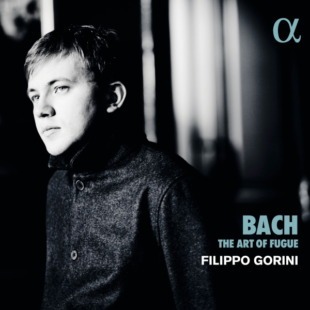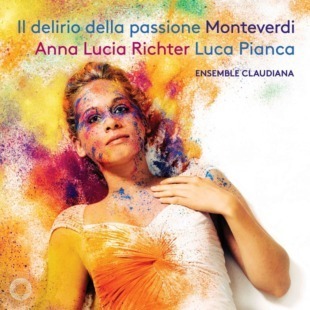
Brahms String Quartets 1-3 & Second String Quintet * on Rubicon Classics
Dudok Quartet Amsterdam
* Lilli Maijala viola
Assisted by a vivid and immediate recording, these performances are searching and artistically satisfying, combining freshness, polish, warmth and spontaneity with well-integrated detail, excellent balance and blend and immaculate ensemble.
Robin Stowell, The Strad, January 2022
… beautifully poised performances recorded with gut strings. … Rubato is sensitive, and portamento discreet; the overwhelming impression is one of warmth, this Brahms smilier and cuddlier than some performances suggest. Quartet No. 1’s hushed opening is superbly done, and the rhetorical chords which follow it pose questions rather than bludgeoning us. The interplay between the two violins is sweetly handled. I like the finale’s driving energy, the C minor close exhilarating rather than depressing. No. 2, composed at the same time, follows a similar template, these players at home in the slow movement’s ear-worm of a main theme as they are in the minuet’s skittish trio… Violist Lilli Maijala joins the Dudoks in a performance [of the Second String Quintet] that’s comparable to a slice of rich fruit cake, one where the flavours aren’t subsumed by excess starch or sugar. It’s glorious, especially in the genial finale.
Graham Rickson, The Arts Desk, 13 November 2021
First violinist Judith van Driel and cellist David Faber of the Dudok Quartet see an ‘unlimited musical labyrinth’ in Johannes Brahms’s chamber music. And that is exactly the way in which they interpret his three string quartets and the Second String Quintet on their new double album: endlessly wandering. They are not looking for the shortest route to the exit or the heart of the maze, but they also explore the corridors that lead to dead ends, because they also contribute – perhaps precisely – to what makes the labyrinth a labyrinth.
The writer Hemingway once argued that a novel is an iceberg of which only one eighth rises above the water, that is, forms the book. Something similar is happening with Brahms: his first two string quartets, for example, stem from twenty earlier versions that disappeared in the fireplace. And that makes the Dudok Quartet tangible: this is music without dead letters, always in motion, every time new.
Joost Galema, NRC Handelsblad, 04 November 2021
… numerous tempo fluctuations are often momentary, as in the little linking passages in the first movement of the A minor quartet, beautifully played by the quartet’s leader Judith van Driel … In all these recordings are a marvel, revealing the intricate detail of these pieces with lovely clarity.
Ivan Hewett, Daily Telegraph, 4 November 2021
Their new album simply features Brahms, although it is Brahms with a bite…
It’s as if Brahms is thawing. Suddenly he is a composer of mild mixed sounds. Even at its fiercest – the closing of the third String Quartet – the music remains transparent.
Guido van Oorschot , De Volkskrant, 28 October 2021
With the first notes of String Quartet No 1 in C minor Op 51, the lyrical sounds surge. From the passionate, rousing opening through a dreamy romance and the beautifully subdued poetry of the third movement to the graceful finale, the Dudok Quartet maintains the tension with playing that sparkles with musical pleasure over the entire length of the piece. This approach continues in the electrifying dialogues of string quartet No 2 in A minor Op 51. In string quartet No 3 in B flat Op 67 the bows sparkle in expressively picturesque music full of changing timbres and with great dynamic contrasts. …a double album with inspired interplay and technical virtuosity condensed into more than two hours of lyrical music as a warm embrace. What more do you want?
C Cornell Evers, Reporters Online, 26 October 2021

Kate Whitley’s Our Future in Your Hands
Blazing community epic
The honest consistency of the piece, building on the example of Greta Thunberg and the youth movement she inspired, is impressive. To help the children learn the music, Whitley builds on repeated phrases and scalic patterns, but she doesn’t change styles to suit the professional orchestra or the three excellent soloists. Much as they stand equally, at the beginning, for Sky, Water and Earth, the dominant effect is oceanic, rhythmic liveliness riding a sea of instrumental sound, occasional flaming flurries from the woodwind, inevitably earnest in its move from lament to optimism as represented by the two halves of the choir – one half “Young children of today”, the other “Children of the future”… This is a work with a future; it will finally receive its intended premiere at the Buxton Festival next year, should work in resonant ecclesiastical spaces around the country and – yes, when logistics are easier, on to the Proms, please.
David Nice, The Arts Desk, 15 September 2021
An angry and effective piece inspired by Greta Thunberg’s activism is powerfully performed by local children
Our Future in Your Hands is inspired by Greta Thunberg’s activism, and it’s an angry piece – how could it not be? It begins with a low orchestral rumble that grows into the first of several insistent “protest songs” for the children, and ends with a chorus describing the world awakening – scarcely less fierce, though the words suggest optimism… Perhaps a feel-good, hopeful ending would have been trite – after all, Thunberg did say she didn’t want hope, she wanted panic. And there was certainly an adrenaline-based reaction to be had from experiencing the sheer volume of sound amid these echoing concrete walls, for listeners and for the children too. This, not extra maths and English, is what children have been missing out on over the last year and a half: the chance to be part of a big, creative, communal experience. It’s more than useful – it’s essential.
Erica Jeal, The Guardian, 15 September 2021
Photo Ambra Vernuccio

BACH The Art of Fugue on Alpha Classics
Filippo Gorini piano
… these beautifully understated accounts on two CDs by Filippo Gorini beguile and charm in equal measure. I almost found myself admiring Gorini’s ability to bring out individual lines in the texture, something which Bach could not have done on any of the keyboard instruments of his time, but which a small chamber ensemble most certainly could and would have done – and which of course the eye, and the mind’s ear, of the educated connoisseur would also naturally have accomplished. If you like your Bach on modern piano, this surely must be the sort of performance you would want – wonderfully free from pianistic effects, elegantly understated and technically perfect.
D. James Ross, Early Music Review
So here’s another fine recording. Filippo Gorini’s has lovely poise throughout, sometimes as though with bated breath, other times with driving propulsion, and occasionally exploding with pure joie de vivre. He never pushes the pace, letting Bach’s complex patterns unfold with grave deliberation, while always keeping the multiple voices distinct.
Michael Church, BBC Music Magazine, November 2021
…wonderfully luminous … Gorini caresses the chromatic arches of the Canon per augmentationem; there is a tactile, pleading quality to his Contrapunctus 5, and even his quick movements (the Italianate Ninth, for example) are beautifully regulated by a meeting of fingers with brain comparable to (for example) Zimerman’s Chopin.
Peter Quantrill, Gramophone, November 2021
The young Italian pianist Filippo Gorini practices the art of discretion, holding the strings together with the finest touch. The view goes inwards. This late Bach, in the hands of this extraordinary young man, is not just “great cinema”, and not academic at all. Fruit of a search for the essentials in the final lockdown, this “art of fugue” is soulfood for an approaching winter.
Takt1 (Germany), November 2021
Filippo Gorini, the 2015 prizewinner [Bonn’s Telekom-Beethoven Competition], delivered another gem, illuminating the intricate interplay of lines in Bach’s Contrapunctus XI from The Art of the Fugue, but playing it not in an academically dry manner, but with palpable fervour and truthfulness.
Matthias Nofze, Bonner Generalanzeiger, 18 October 2021
Here, a young pianist has worked out a real masterplan for one of the most complicated works in piano literature, which he also consistently implements – free of gimmicks and airs, free of any self-promotion. This has greatness, this has substance. Thus Filippo Gorini has succeeded in creating an impressively coherent and well-considered recording of Bach’s Art of the Fugue that is as wise as it is sensitive – right up to the moment when the work breaks off: “The composer died over this fugue […],” his son Carl Philipp Emanuel noted in the manuscript. Then follows a minute of silence.
Christoph Vratz, SWRadio2 (Germany), 4 October 2021
He plays each of these canons, fugues, and counterpoints as musical statements laden with feeling and rhetorical meaning. This isn’t to say that he treats them like Romantic pieces, but rather that he interprets them through a lens that isn’t strictly academic. The result is a truly enlightening and deeply moving performance. Both discs are recommended to all classical collectors.
Rick Anderson, CD Hotlist (US), October 2021
*****
Priority seems to be given to eloquence… The music is rich enough to offer and support different interpretations. Filippo Gorini’s remains one of rare intensity.
Philippe Venturini, Classica, October 2021
[I] have nothing but admiration for his performance in general. All in all I have to declare that this is one of, if not the most expressive recordings of this work available.
Dominy Clements, Music Web International, September 2020
…a reading that does not exhibit anything dramatic but knows how to recall enchantment even from the depths of uncertainty.
Corriere della Serra, 16 September 2021
Gorini’s playing is lyrical and warm, the expansive tempi giving the music space to breathe. The Canon alla Ottava feels unusually dance-like, a bracing release of tension after the four fugues which precede it. He excels in contrasts: Contrapunctus VI is all poise and elegance, the fugue that follows it a study in quiet introspection… There’s a palpable sense of discovery. Gorini gives each fugue personality. His Fuga a 3 soggetti is terrific, played unfinished as Bach left it, the sudden finish as surprising as ever. We’re left wanting to find out more.
Graham Rickson, The Arts Desk, 11 September 2021
The discursive themes… are made evident, with gentle but incisive expressiveness in the safe hands of this young pianist… A particularly valid CD, which reveals Gorini’s evident aptitude for, and total involvement in, the music of supreme Bach. Highly recommended.
Cesare Guzzardella, Corrierebit.com, 5 September 2021
This beautiful album is a landmark in the Bach discography. Gorini brings archaic into our time, confidently, multilayered, uninhibitedly natural, with the voice of one who transposes cosmic loneliness into lucid experience. And does not entrench himself in an ivory tower, but enters into an open cross-genre conversation with his audience. Stupendous!
Online Merker, September 2021
Gorini is… a young pianist on his way to Bach’s counterpoint summit. In keeping with the work and self-confident. But also respectful – evident in the fact that the final quadruple fugue remains a fragment and the problematic chorale conclusion is omitted. Gorini’s interpretation of The Art of the Fugue is a very sophisticated achievement.
Johannes Adam, Badische Zeitung
In this interpretation, the world of fugues doesn’t resemble the stony roads, grey landscapes that Gorini depicts in his poems. It’s more like a cosmos made of glass, transparent, an almost unreal magical world in which all is audible, but nothing is tangible, and in which one moves as in an illusive dream. Filippo Gorini is a master of gradual progress, of untraceable transitions. A crescendo builds up and breaks down over many, many bars, in a single great line. Everything flows, nowhere is there even a trace of rough edges. But – and this is where it turns into true art – it seems neither too smooth nor innocuous but instead, for wide stretches, like a single mediation… There may be recordings that place more importance on bigger contrasts, on articulatory finesse or on the ‘Art of the pianist’ rather than the ‘Art of the Fugue’. Filippo Gorini, on the other hand, remains behind the work as an interpreter. Bach is what you hear, not Gorini. This is indicative of an artistic maturity and skill which are nothing short of astonishing.
WDR3 TonArt, September 2021#
… a recording that is one hundred percent convincing and that captivates the listener above all through its sparse expressivity. Gorini succeeds in leading the music into silence and dissolving it there. The colors remain brittle, the touch discreet and deeply felt. The forms develop as if by themselves, unobtrusive but concise, visionary. The breath remains calm, the interpreter introverted. It almost seems as if he had recorded this work in one breath, so compact does the rendition seem. Overall, this is one of the most interesting recordings of The Art of Fugue in existence.
Remy Franck, Pizzicato, 4 September 2021
There is no doubting that Filippo Gorini is one of the great thinkers around today… He is at once intellectual (nothing escapes him in this complex music) and yet speaks directly, yes, to the heart, but more, to the soul. Gorini once told me that it is the dialogue between the voices in contrapuntal music that he finds so fascinating, a fascination that shines through every note of this two-disc experience. The performance is peaceful, and unutterably profound; what Gorini himself refers to as a ‘timeless beauty’.
Colin Clarke, Classical Explorer, 27 August 2021

Attacca on GENUIN
Resch Quartet No 3 attacca &
Beethoven Quartet in F Op 59 No 1 Razumovsky
Aris Quartett
… keeps the piece [Resch String Quartet No 3] in suspense, thanks to the communicative, lively and passionate playing of the Aris Quartett.
Fono Forum, October 2021
Such intimately touching moments, like in the Adagio in Beethoven’s quartet, characterise the new Attacca album by the Aris Quartett as well as vitality, esprit and a captivating joy in playing. The combination with Gerald Resch’s quartet opens up interesting perspectives and points of reference. The successful recording makes you want more; and it will be interesting to see which work the Aris Quartet will record alongside Beethoven’s still outstanding second Razumowsky Quartet.
Klaus Gehrke, Deutschlandfunk, 25 July 2021
Their 2017 album of Op. 131 and the Third ‘Rasumovsky’ raised expectations which this account of Op. 59 No. 1 satisfies from the edgy momentum of the opening bars … The tautly drawn nerves of the Aris’s Beethoven find an expressive match in the belated expressionism of Resch’s classically balanced quartet writing. The well-balanced, detailed, but not analytical recording and usefully unpretentious booklet notes by Resch are further assets to an album worth noticing.
Peter Quantrill, The Strad, July 2021
The Aris Quartet’s playing is accordingly intense and gripping in this work (Resch Quartet No 3), which is logically followed on the CD by the quoted Beethoven Quartet. And Opus 59 also makes sense in that it contains the germ of Beethoven’s innovative ideas, that would reach perfection in the late compositions. This becomes very evident with the Aris Quartet.
The four musicians know how to listen to each other and to develop the music together, to see it as an exchange and yet not to disregard the depth of thought as well as the emotional component.
Remy Franck, Pizzicato, 19 May 2021
Beethoven That Sings Like A Pentecostal Nightingale
Resch’s citations of Beethoven are subliminal more than literal, but the mind absorbs them as a frame of reference on the attaca journey, like unlit milestones at night on a country lane. There is more darkness here than in Beethoven, but it is nonthreatening. …the Aris play Beethoven with sweeping flair and something close to insouciance. When COVID is over, I shall hear them live. Meantime, their Beethoven adagio sings like a Pentecostal nightingale.
Norman Lebrecht, Lebrecht Listens/Ludwig Van, 7 May 2021
A Sicilian Traveller
Tsintsadze, Komitas, Coleridge-Taylor, Skalkottas and Bartók on Rubicon Classics
Alessio Pianelli cello
Avos Chamber Orchestra
As a cellist … Pianelli is convincing: technically and with a very beautiful tone. He has practically absorbed all of the recorded works – also through his own arrangements of the pieces for cello and string orchestra – and thus presents his own interpretations.
Dorothee Riemer, Fono Forum, September 2021
In this enterprising release … cellist Alessio Pianelli not only plays with elan and virtuosity, but has also made idiomatic arrangements of all the pieces. For example, the Sulkhan Tsintsadze Miniatures were originally written for string quartet. Yet how well they make the transition to cello and string orchestra – so much so that it would be great to see them published in this version. … A more pungent musical language defines both the Bartók and Skalkottas. The latter are excellent arrangements from his monumental 36 Greek Dances for Orchestra. Perhaps though, the towering composition here is the well-loved Romanian Folk Dances by Bartók with its perfect assimilation of indigenous folk idioms, vividly projected in this fine recording.
Joanne Talbot, The Strad, June 2021
…a strongly characterised performance full of vigour and energy in the outer movements but also reflecting mystery and melancholy in the third and fourth dances [Bartók’s Romanian Folk Dances]… for me the most striking music of all comes in the selection of Greek Dances by Skalkottas which surely deserve to be much better known. Pianelli and the Avos Chamber Orchestra deliver a strongly committed performance captured in vivid sound.
Erik Levi, BBC Music Magazine, June 2021
Cellist Alessio Pianelli’s delightful album is a lively tribute to his native Sicily
All pieces, arranged by Pianelli for cello and strings, are rooted in folk music. In addition to soulful songs by Komitas, guardian of the Armenian musical heritage, there are spirituals and infectious Greek rhythms. Pianelli provides the smooth, honey-coloured solos, the Avos Chamber Orchestra the additional panache and percussive momentum … here it is all about heart and soul, past and longing. Pianelli’s own composition, turbulent variations on the Sicilian folk tune Ciuri, ciuri, is also bursting with zest for life.
Jenny Camilleri, de Volkskrant, 16 April 2021
In A Sicilian Traveller, Alessio Pianelli shows himself to be not only an exceptionally talented and passionate musician, but also an inspiring musical archaeologist and guide through and along the historical sources of Sicilian culture. His mission has succeeded.
C Cornell Evers, Reporters Online (NL), 7 April 2021
****
To record these songs Pianelli first of all re-arranged them for solo cello and the Rome based Avos string orchestra. It’s an immense labour of love which Pianelli has carried out with great tact as well as musical imagination. The deep tragedy of the Armenian songs, the lighter charm of the Georgian melodies, and the eccentric, tangy quality of the Greek pieces all shine through, thanks to Pianelli’s playing which is changeable as quicksilver and mournful as a folk balladeer. At the end Pianelli returns home, playing his own witty variations on a Sicilian melody. It’s a fine end to a disc that glows with Mediterranean and Near Eastern heat, and if we really can’t get away to the sun this summer it will bring some comfort.
Ivan Hewett, Daily Telegraph, 30 March 2021
… the interpretations and arrangements are captivating, supported by the strings of the Avos Chamber Orchestra, with a fine feeling for the specific colours belonging to the origins of the different works. The album offers a pleasant and varied introduction to spring.
Pedro Obiera, Achener Zeitung, 27 March 2021
When the Cello Sings and Dances
…a pleasing and entertaining program that blossoms in the lively and virtuosic interpretations of Pianelli and the musicians of the Avos Chamber Orchestra, placing lightheartedness alongside melancholy and nostalgic melodies. In so doing, Pianelli certainly goes his own way with individual phrasing, exquisite rubato and finely nuanced colours. He lets his cello and his orchestra sing and dance. This is suggestive music-making on a high technical level, which is all the more evident because the sound recording is also of excellent quality… very present, full and rich, but at the same time of captivating transparency. The CD concludes with the distinctive and exquisite, originally and imaginatively realised Variations on a Sicilian Theme by Alessio Pianelli himself.
Remy Franck, Pizzicato, 26 March 2021
*****
Alessio Pianelli is a cellist with a vision – of a magical mosaic of all the musical influences which have infused the culture of his native Sicily… His taste is impeccable: every track on this CD reflects a love of music rippling with convivial pleasure.
Michael Church, The Independent, 4 March 2021

Monteverdi Il delirio della passione on Pentatone
Anna Lucia Richter mezzo soprano
This [Lamento della Ninfa] is just one moment of many that mark out Anna Lucia Richter’s performances on this record as constituting something of a watershed in the history of Monteverdian heroines, a new and focused voice, richly varied in its tonal palette, unafraid to exploit the full gamut of human emotion so dramatically etched by the composer. Richter’s bright, clean, focused tone, precise diction and keen sense of drama will be familiar from her performances in an impressively wide-ranging portfolio … The heart of her achievement on this recording is undoubtedly the lament from Arianna, the only part of the opera to have survived. With its sure-footed command of the patterns and cadences of the Italian language, from Arianna’s agonised opening cry to her desperate urgent repetitions of Teseo’s name (the strong rhetorical feature that links the sections and provides emotional architecture), this is a powerful reading. It is surely the only serious competition in the catalogue to Cathy Berberian’s classic performance with Nikolaus Harnoncourt from the 1970s.
Iain Fenlon Gramophone, May 2021
Richter’s declamatory storytelling reaches an impressive peak in the Lamento d’Arianna where every device of characterisation and emotional evocation is brilliantly deployed … this selection provides a fresh and unusual look at many Monteverdi favourites.
Anthony Pryer, BBC Music Magazine, May 2021
Richter’s soprano is true and bright and when she does unleash it, as in the sacred aria, Confitebor tibi Domine, it rings out pleasingly… The long Lamento from the otherwise lost L’Arianna is profound and shows Richter’s art at its best: detailed, luminous and heartfelt.
Francis Muzzu, Opera Now, May 2021
…her voice has a glorious substance and joy… A beautiful life-enhancing disc of the very first order.
Colin Clarke, Classical Explorer, 28 April 2021
Richter’s light and supple voice provides a melodious contrast from the instrumental episodes, whose vitality can be first heard in the crisp tambourine. There is a pleasing variety across each of the vocal solos as well – some are extroverted while others, like the final words, are barely above a whisper. …
This diverse collection offers some of Monteverdi’s finest works, making it just as suitable for an enthusiast as someone less familiar with the range of his output. All around, an enjoyable listen – and recommended without reservation.
Azusa Ueno, Classical Review, 22 April 2021
A baroque album that brings joy
Anna Lucia Richter intones perfectly with her clear, charmingly timbred and perfectly placed soprano voice, and also delivers rhythmical assurance with playful ease. Musical expression and a highly individual approach to music and its infinite nuances take precedence over virtuosity and the display of technical attributes.
Dr Ingobert Waltenberger, Online Merker, 21 March 2021
It seems impossible to me that anyone would not be impressed by this exquisite art of singing by the versatile German soprano (now mezzo soprano) Anna Lucia Richter, who appears in almost every kind of repertoire and can claim to be one of the most important vocalists of our time … [Richter] gives us her ‘melody of speech’ with an – as she herself puts it – ‘inscrutable emotional depth’ in which every word, if not every syllable and every comma is expressed with a spontaneity that erases every trace of advance artistic calculation. It sounds like it was all created on the spot.
Aart van der Wal, Opus Klassiek, March 2021
The opening number gives you the range of expression Richter brings and the instrumental colours of Ensemble Claudiana … A powerful performance of Arianna’s Lament – the range of the music here can be quite startling. Overall it’s a potent Monteverdi showcase.
Andrew MacGregor, BBC Radio 3 Record Review, 13 March 2021
Her well-chosen anthology of Monteverdi is so sunny, so alive… Richter and Pianca give us a near-perfect blend of solemnity and froth… It’s all terrific… Beautifully engineered too; this has already been pencilled into my provisional ‘Best of 2021’ list.
Graham Rickson, The Arts Desk, 13 March 2021
With absolute vocal security, a beautiful timbre and great interpretations,[Richter] proves to be an eminent baroque singer. Since she has her own style of performance, in which she uses her voice in a more nuanced, colourful and less virtuosic way than, for example, Simone Kermes and Joyce Di Donato do, she stands out pleasantly from these two divas and still inspires with a fascinating and very personal performance. This is Monteverdi as one would wish him to be: light, expressive, colourful and, above all, stylistically flawless.
Remy Franck, Pizzicato, 8 March 2021
Richter’s Lively Monteverdi
This CD is clearly one of the finest I’ve heard of any of Monteverdi’s music… The entire CD takes off like a firecracker; even the slow pieces, such as the Lamento d’Arianna, have an underlying drive to them, aided by Richter’s rich and highly expressive voice, that grabs your attention and doesn’t let go.
Lynn René Bayley, The Art Music Lounge, 3 February 2021